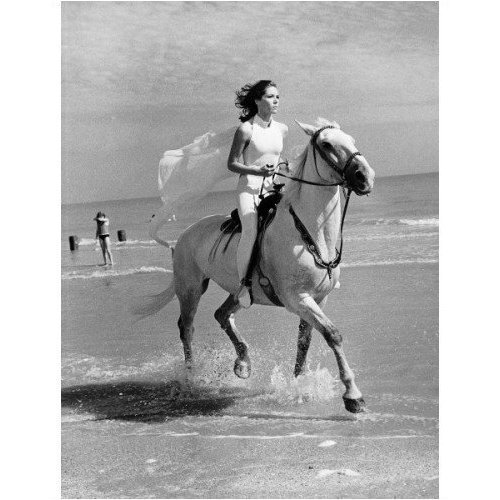Author’s Note:
I’ve added some links throughout this post to bring a little levity to a serious subject.
There has been much in the news in recent times regarding the increase in bullying in schools. My heart goes out to the children of this generation, because with text messages, Photoshop, Facebook, Twitter and YouTube (among many others), the possibilities for being tormented have drastically increased since I was in high school. This is my recollection of being harassed and intimidated in a time before technology made life utterly unbearable for the bullied.
When I was fourteen, I attended a progressive high school in New York City for my freshman year. While I loved the unusual format and variety of the classes, I was something of a social outcast and a hermit. When I did interact, I usually hung out with other socially inept nerds who were also good students. But mostly, I ensconced myself in self-imposed isolation.
Unbeknownst to me, I had a stalker, a girl in my grade who would follow me around and try to make friends with me. My intuition said to avoid her, but I quickly learned that this was not appeasing her at all. Stacey got progressively more aggressive as a result of my ignoring her, to the point where she scrawled “Witch! 666!” all over my hall and gym lockers. She repeatedly tried to take pictures of me undressing in the locker room. I received several late-night phone calls from her where she would whisper in sinister tones that I, the “stuck-up bitch” was going to “get what I deserved.” Things came to a head in gym class, when she hurled a basketball at my stomach with such force that I spent the rest of the day under observation in the nurse’s office.
Fortunately for me, my mother became aware of what was going on. (I was too mortified to tell anyone.) She made an appointment with the Assistant Principal and calmly informed her that she was going to sue the school system if my tormentor was not expelled. My mother’s ire was effective, and Stacey was indeed expelled. I later learned that her entire motivation for trying to get my attention – including her extreme tactics – was because she had an unrequited crush on me. I had been completely clueless that this was even a possibility.
As a result of the trauma I’d endured at my Brooklyn high school, I moved in with my grandparents to their house in Sullivan County (roughly 75 miles north of NYC). For my sophomore year, I enrolled at the local school, which — given the much smaller population — was a combination of junior and senior high school, which encompassed grades 7 through 12. Given the lack of stimulation of the rural area, many of the students entertained themselves with drugs and promiscuous sex. It was tremendous culture shock to be around so many decidedly non-serious students. One of my 10th grade classmates, a charmer named Butch, was eighteen years old at the start of the school year. He would routinely serenade the class by pounding on his desk and singing the chorus of “White Lines”, a cautionary song about cocaine abuse. (Butch had clearly missed the cautionary part.) His disparaging nickname for me was “Goody Two Shoes.”
I befriended my teachers and a couple other nerdy/smart kids in my class, and I thought I was doing fine. In fact, I was doing fine, until I encountered the wrath of a classmate who appropriately shared a name with the killer car in the Stephen King novel. Christine was a pretty and popular but less-than-bright girl who hated me on sight. She scorned my big city background, my large vocabulary, my comparative innocence — I didn’t drink, smoke, do drugs or have sex — and my fondness for the lone Asian kid in our class (who was one of only a handful of minorities in the entire school). In addition, Christine openly mocked my favorite light pink hooded sweatsuit that I wore to gym class. This quickly earned me my second nickname: “The Pink Panther.”
One day, in the soccer field during practice, she kicked the ball and deliberately hit me in the face, resulting in a déjà vu visit to the nurse’s office. The gym teacher chalked it up as an accident, but I knew it definitely hadn’t been one. It wasn’t until Christine pushed me down a flight of stairs that the administrators finally acknowledged there was a problem. (Thankfully, they were stairs with a landing in between floors, so I was bruised but not seriously hurt.)
My grandparents took me out of school, since expelling Christine only solved part of my problems with the school. My teachers helped me out by arranging a home-school program for me to finish out the school year. In the summer, I returned to Brooklyn, and I nearly kissed the ground there when I arrived. The experience taught me that it was far better for me to live in a challenging but intellectually thriving place than to try to retreat to rural isolation. After that point, I was fortunate in that I never had another problem with bullies or mean girls.
I have tremendous compassion and empathy for all the kids who have to deal with unprovoked attacks on a regular basis just to get through the school year. I hope that some of these children are fortunate enough (as I was) to have parents and family members who are advocates and supporters. To any of you who’ve dealt with similar difficult circumstances, I hope that it’s helped you and in some way made you a stronger person. As always, you are welcome to share your experiences and thoughts in the comments.
In closing, the following clip is a beautiful, gently cathartic song designed to raise your self-esteem. (You may be crying by the end of it.)
“How could anyone ever tell you
you were anything less than beautiful?
How could anyone ever tell you
you were less than whole?”

 1705: William Cookworthy: Cookworthy? Not according to his wife! He did, however, kill scurvy by telling those saucy seamen to make sure to eat their fruits! The seamen, naturally, misinterpreted his dietary suggestion and continued to succumb to the disease until sometime later. Always carry Trojans and a bottle of orange juice, boys!
1705: William Cookworthy: Cookworthy? Not according to his wife! He did, however, kill scurvy by telling those saucy seamen to make sure to eat their fruits! The seamen, naturally, misinterpreted his dietary suggestion and continued to succumb to the disease until sometime later. Always carry Trojans and a bottle of orange juice, boys!
 Amati made violins, but no one can name a single luthier (that’s violin-maker) other than Antoni Stradivari, so, better luck next time Nick! Still, Nick’s violins are generally agreed to be the best in his family, at least for modern violinists and who can afford a Stradivarius anyways? Those things cost more than a one bedroom apartment in Chelsea. We’d rather have the apartment and use the savings on an Amati if we played violin. However, we don’t. We started taking lessons briefly after hearing Neon Bible but we didn’t really take it seriously and quit after a month or so.
Amati made violins, but no one can name a single luthier (that’s violin-maker) other than Antoni Stradivari, so, better luck next time Nick! Still, Nick’s violins are generally agreed to be the best in his family, at least for modern violinists and who can afford a Stradivarius anyways? Those things cost more than a one bedroom apartment in Chelsea. We’d rather have the apartment and use the savings on an Amati if we played violin. However, we don’t. We started taking lessons briefly after hearing Neon Bible but we didn’t really take it seriously and quit after a month or so.
 238: The Battle of Carthage: Led by the father/son empiric duo of Gordian the First and Gordian the Second, the Romans fell to the Numidians (modern-day Libya). Gordian the Second was killed in battle, and upon hearing the news, Gordian the First, who was 80 at the time, killed himself.
238: The Battle of Carthage: Led by the father/son empiric duo of Gordian the First and Gordian the Second, the Romans fell to the Numidians (modern-day Libya). Gordian the Second was killed in battle, and upon hearing the news, Gordian the First, who was 80 at the time, killed himself.










 1886: Oskar Kokoschka: When I was in art school, we had a thing wherein we’d go behind someone, push them lightly on the shoulders, not enough to make them fall down, but enough to scare them, and scream Oskar Kokoschka’s name. It was an act of absurdism in the name of the master of German Expressionism and the idol of myself and several of my friends. The painter, poet and playwright was originally told that he was mentally unstable after being injured in World War One, but aren’t all the greats? I know that I’m pretty mentally unstable. Who wants to be stable? Perhaps its my idolatry of Kokoschka that has led to my allowing myself this instability. Anyways, the Nazis deemed him and his work degenerative, so he escaped to Prague, until the Czech began to mobilize for an invasion from Germany and he escaped to the United Kingom. His style was very nervous, but filled with great motion and intrigue and his play is considered the first Expressionist drama. The individualism displayed by himself and Max Beckmann created one of the greatest offshoots of the Modern Art movement, though Kokoschka saw himself as a footnote in the annals of art history towards the end of his life which made him bitter. Here’s an example of his work: The Red Egg, 1941, currently in Prague’s Narodni Gallery:
1886: Oskar Kokoschka: When I was in art school, we had a thing wherein we’d go behind someone, push them lightly on the shoulders, not enough to make them fall down, but enough to scare them, and scream Oskar Kokoschka’s name. It was an act of absurdism in the name of the master of German Expressionism and the idol of myself and several of my friends. The painter, poet and playwright was originally told that he was mentally unstable after being injured in World War One, but aren’t all the greats? I know that I’m pretty mentally unstable. Who wants to be stable? Perhaps its my idolatry of Kokoschka that has led to my allowing myself this instability. Anyways, the Nazis deemed him and his work degenerative, so he escaped to Prague, until the Czech began to mobilize for an invasion from Germany and he escaped to the United Kingom. His style was very nervous, but filled with great motion and intrigue and his play is considered the first Expressionist drama. The individualism displayed by himself and Max Beckmann created one of the greatest offshoots of the Modern Art movement, though Kokoschka saw himself as a footnote in the annals of art history towards the end of his life which made him bitter. Here’s an example of his work: The Red Egg, 1941, currently in Prague’s Narodni Gallery:
 1987: Ke¢ha: That girl who always looks really dirty and sings about brushing her teeth in the morning with a bottle of Jack Daniels because she’s a complete alcoholic turns 24 today! Ke¢ha is a terrible idol, mainly because while she’s had great success, she’s not particularly talented. I like Ke¢ha when I’m driving and not wanting to listen to WRCJ or WOMC, but that’s about it. There’s no substance. Still, she has more money than we could dream of, but hey, I like her better than Gaga so there’s that.
1987: Ke¢ha: That girl who always looks really dirty and sings about brushing her teeth in the morning with a bottle of Jack Daniels because she’s a complete alcoholic turns 24 today! Ke¢ha is a terrible idol, mainly because while she’s had great success, she’s not particularly talented. I like Ke¢ha when I’m driving and not wanting to listen to WRCJ or WOMC, but that’s about it. There’s no substance. Still, she has more money than we could dream of, but hey, I like her better than Gaga so there’s that. Ashlee Simpson’s baby naming idol was kidnapped as a kid by the King of England as a pledge for the continued good faith of Gryffydd’s father Llywelyn the Great. Griffid. Gryefehd. Gryffindor.
Ashlee Simpson’s baby naming idol was kidnapped as a kid by the King of England as a pledge for the continued good faith of Gryffydd’s father Llywelyn the Great. Griffid. Gryefehd. Gryffindor.  1980: Wilhelmina Cooper: An icon amongst models and the idol of every aspiring girl, Wilhelmina Cooper, founder of Wilhelmina Models, and the woman with the most Vogue covers: 28. She appeared on 255 covers during her career, launched Naomi Sims, the first black supermodel and was portrayed by Faye Dunaway in the movie Gia about another model Wilhelmina’s agency launched to stardom, Gia Carangi who later died of AIDS.
1980: Wilhelmina Cooper: An icon amongst models and the idol of every aspiring girl, Wilhelmina Cooper, founder of Wilhelmina Models, and the woman with the most Vogue covers: 28. She appeared on 255 covers during her career, launched Naomi Sims, the first black supermodel and was portrayed by Faye Dunaway in the movie Gia about another model Wilhelmina’s agency launched to stardom, Gia Carangi who later died of AIDS.
 1984: Jackie Coogan: A comedic idol! Jackie Coogan was a stah! A child stah! With all the child stah problems like having his parents steal his earnings. Naturally, he sued them, got very little of the money he earned and got a bill named after him that requires 15% of child star earnings to be placed into a trust. He’s best known as Uncle Fester on The Addams Family, but he was also Oliver Twist.
1984: Jackie Coogan: A comedic idol! Jackie Coogan was a stah! A child stah! With all the child stah problems like having his parents steal his earnings. Naturally, he sued them, got very little of the money he earned and got a bill named after him that requires 15% of child star earnings to be placed into a trust. He’s best known as Uncle Fester on The Addams Family, but he was also Oliver Twist.